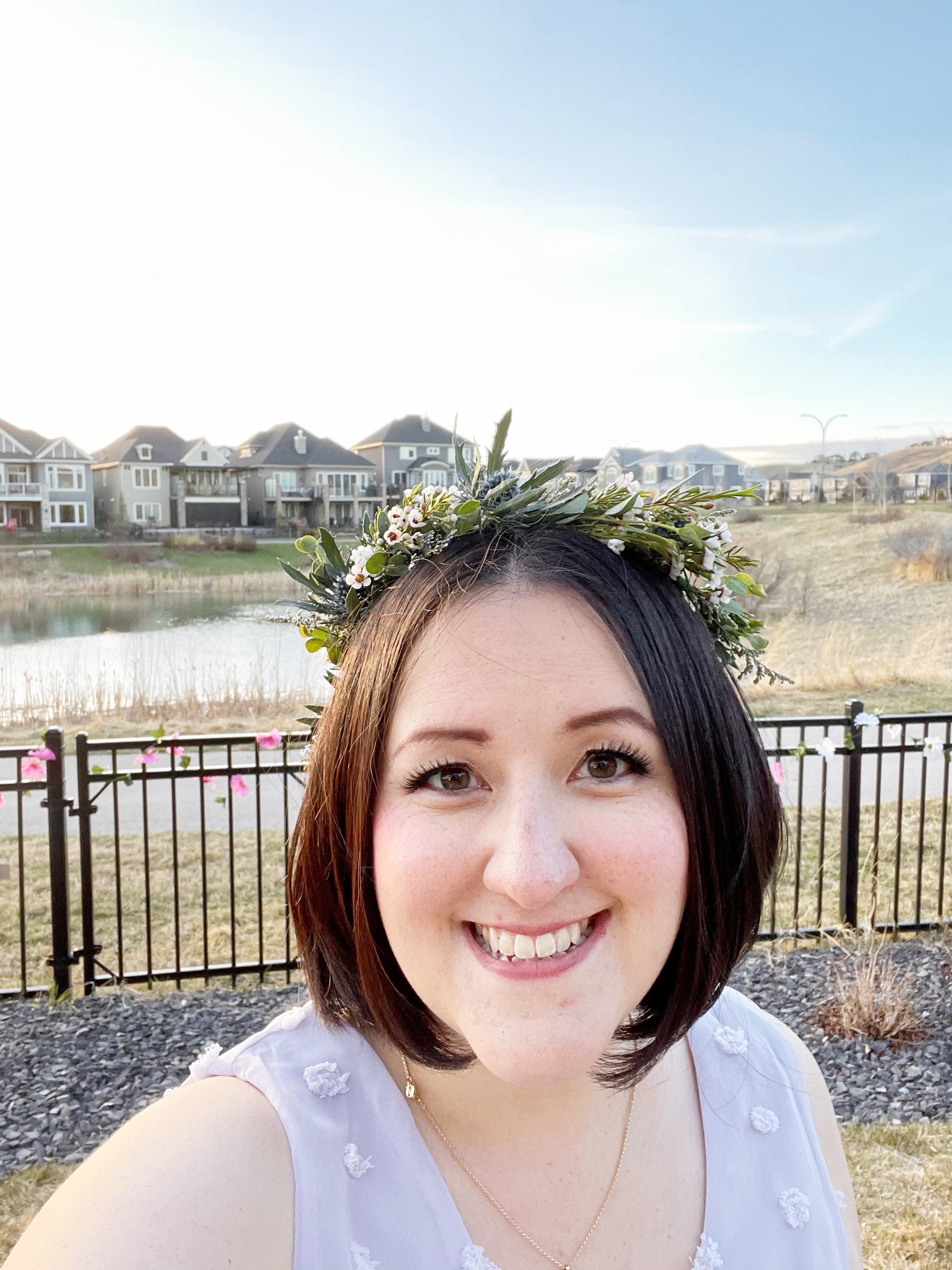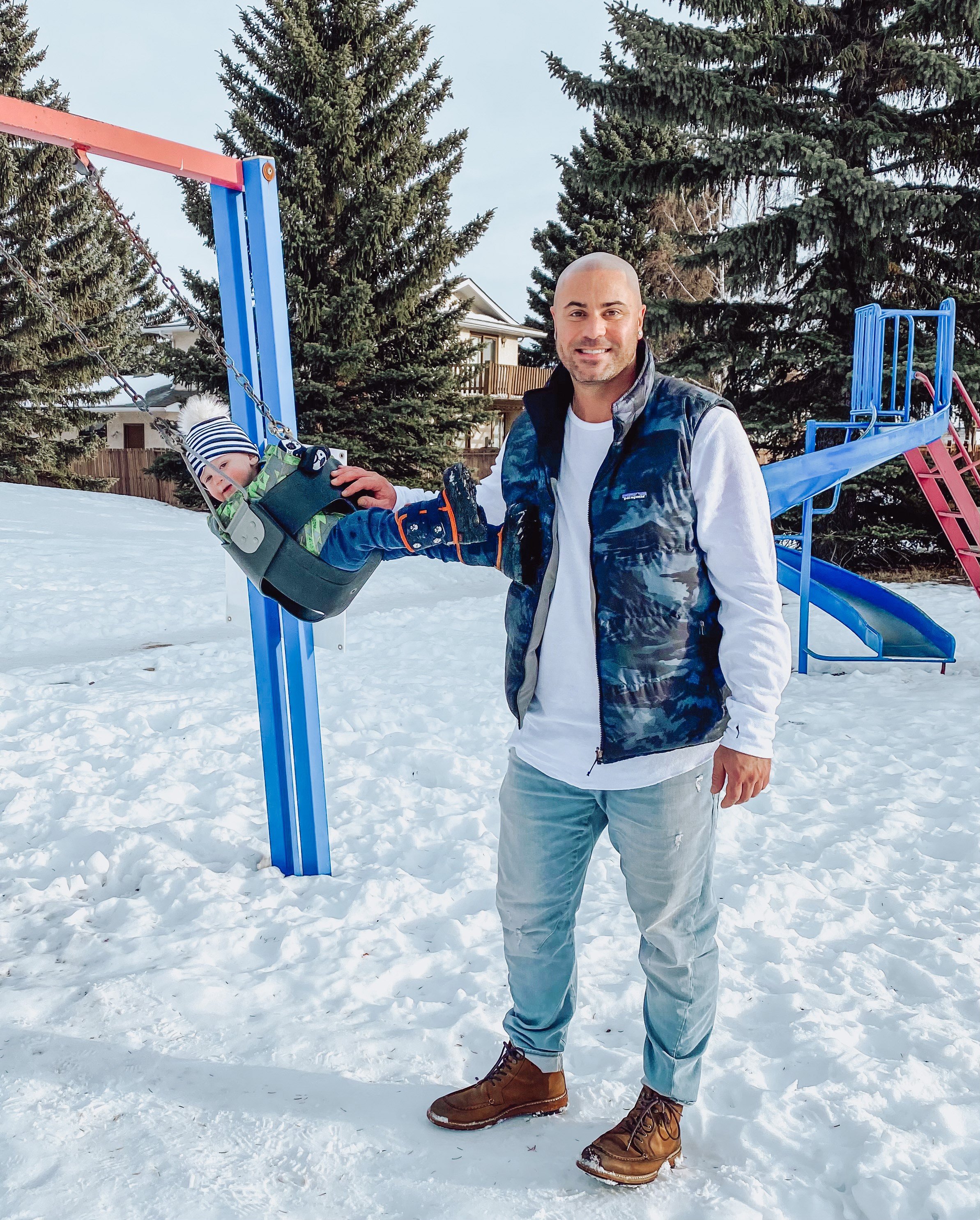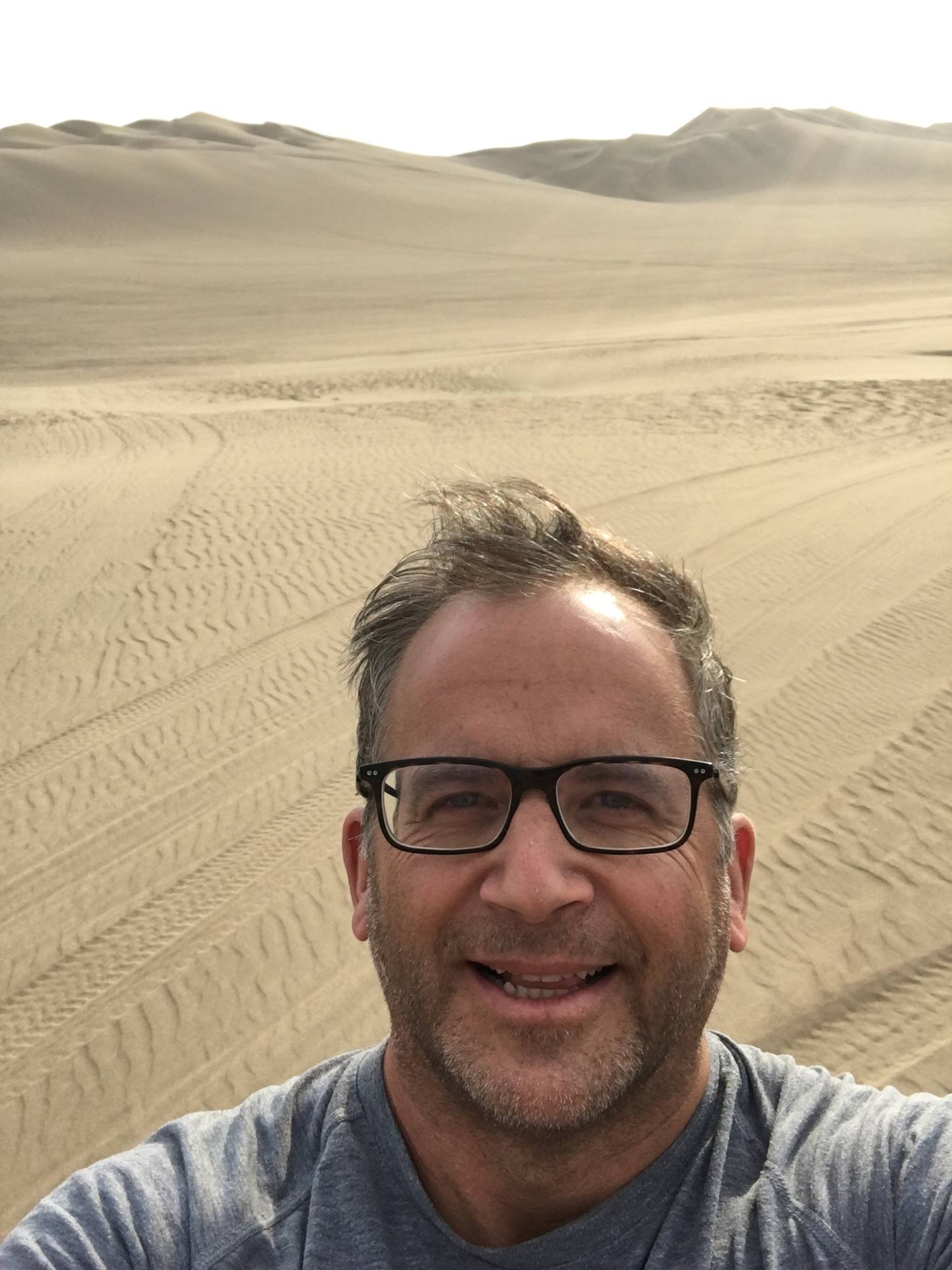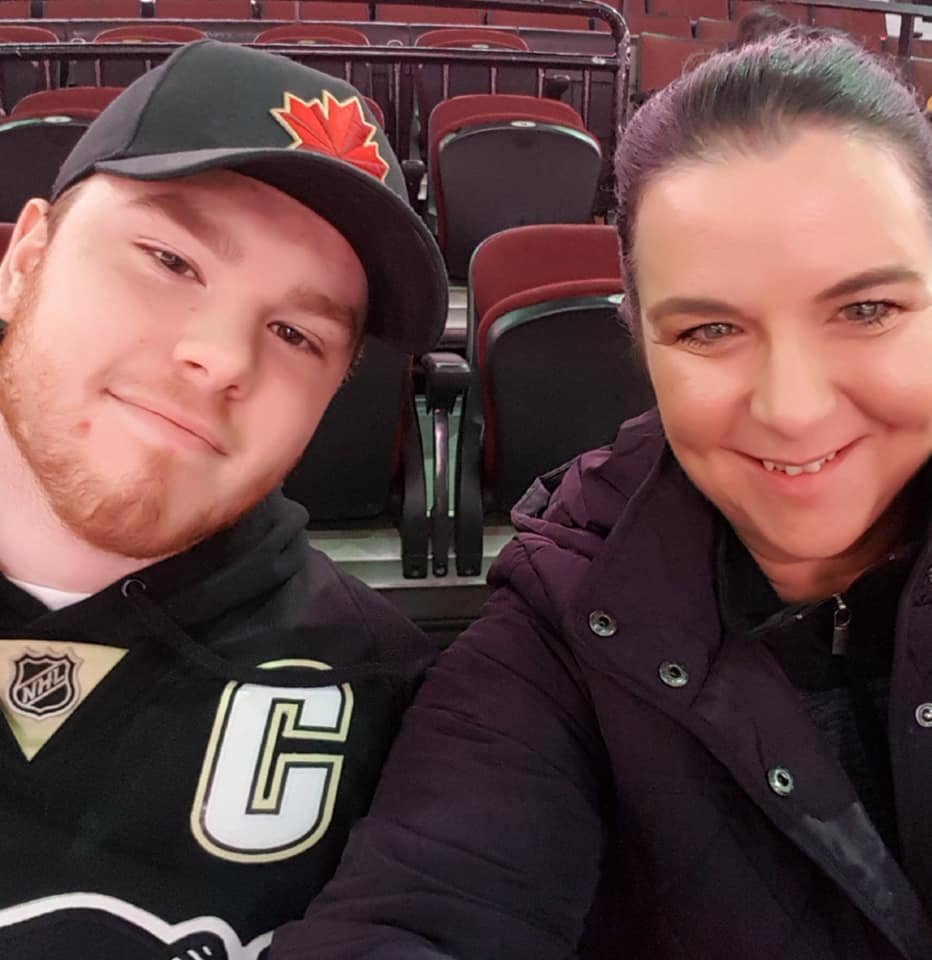To Play or Not to Play, Shouldn't Even Have Been a Question!
The day I became a mother, something shifted inside me. I became more in tune with others’ feelings and more aware of dangerous situations before they happened. Not just for my daughter, but for everyone around me. The Mamma bear reference is a real thing, you don't truly experience until that magical day arrives.
The Old School Mentality Will Get You Hurt
Over the years, I’ve developed ways to cope/control and even overcome them. Just as concussion and PCS symptoms can vary person to person, so too can their treatment methods. What’s worked for me isn’t a cure-all for others that have endured a similar history of head injuries, but the key is to find the path that works for you. That’s why I think it’s invaluable for all of us to share our stories and struggles, as well as certain methods of coping and overcoming them.
Conquering Concussions: From Struggling to Studying
I have decided to start a Team Up Chapter here at the University of Guelph. With CLFC, I hope to use my knowledge and personal experience with TBI to enhance the quality and accessibility of resources available to young athletes regarding concussion prevention and post-concussion syndrome.
Concussed in the Blink of an Eye
The inspiration that helped me push through recovery was knowing that I would eventually feel better. I look up to athletes like my friend Valerie Grenier who went through very painful injuries and came back even stronger.
Seeing the Light
If you or someone you know is suffering from post-concussion syndrome, I hope you are brave, persistent, and persevere through your battles. I hope that you believe in yourself – even when you feel no one else does. I truly believe God/the Universe believes in you. Be your own coach – believe in yourself and find others that believe in you too!
How Honesty and Openness Create Hope
In the case of so many people like me, mental illness is a chronic problem that will be managed for years if not the rest of their lives. The key to managing these issues is speaking openly, candidly and honestly about mental illness. Things are no different with head injuries. Concussions and post-concussion syndrome can stay with us for extended periods of time, if not the rest of our lives. Talking about it without judgment or stigma is the best way to receive the help we deserve. This is what I hope to promote and support.
Believe 100% in Your Ability to Recover
The invisibility of our injuries doesn’t make it easy for others to understand and support us. No matter what stage you are in, ups and downs are part of the process. Recovery isn’t linear. If you start to believe 100% in your ability to heal, you will get better.
My Second Birthday
I am 34+ years since the injury I received. I am no less involved with my rehab as I was the day I was first wheeled into the PT department at Humana Hospital in 1986. And, like those first days in rehab, every day begins with the decision to work on what I can, try to apply what I learn, practice insight and maintain my self-awareness.
In my world, this is what it means to be a TBI survivor.
An Advocate for Change: My Troubling Journey through Post-Concussion Syndrome and Probable CTE
As I write this, I am feeling tired, beaten, worn out and fatigued – mentally, physically, and emotionally. My life’s journey has been a long and troubling battle with head injuries, depression, anxiety, exhaustion, substance abuse, self-loathing and mistreatment by my profession. 90% of the time, I can hardly function in my day-to-day life, as I deal with extreme migraine headaches, profound body pain, incapacitating fatigue, severe depression, sensitivity to noise and light, you name it – I can check all the boxes. I have problems with memory, impulse control, mood imbalance, cognition and executive functioning. I have been seen by every type of physician and medical professional there is; from neurologists, endocrinologists, psychiatrists, physiatrists, somnologists (i.e. sleep doctors), etc. Every answer has been the same: my brain has been irreparably injured by way of repeated blows to the head. I do not have cancer, a stroke, ALS, etc. I have a brain injury. A serious and likely progressive medical condition.
Shattering the Stigma - It’s Time for a Hand Up
Intense experiences can be great teachers. I have been thinking for some time about what thoughts I can offer in this personal story that might be helpful to those who are struggling now either with post concussion syndrome, depression, anxiety or other mental health challenges. While I don’t claim to have any specific solutions to anyone’s problems, I can share an idea that I hope will lead in a positive direction. The objective is to ease the pressure on people in crisis through everyone recognizing their common humanity.
The Orange Butterfly
The ability to find both hope in healing, and heart in transformation. The Orange Butterfly seeks positivity in darkness and difficult changes, to emerge from setbacks with grace and beauty in our eyes. A reminder to embrace new life, pathways and challenges with faith.
Looking Forwards and Back: A Letter to Myself
When you first share your story, you will receive messages of encouragement and some advice, but still feel stuck. People’s attitudes around you will slowly change. It takes work, but it happens. You will discover the brave and vulnerable world of ‘people like me’. This world will open a gateway of possibility, learning, understanding, and hope. You will learn more about the world of disability and how this world really is only made for ‘able-bodied’ people. You will start to advocate. You will return to work; in a society built on the belief that bodies that are not ‘productive’ do not have worth, you fought back. You fought for accommodations (a phased return, remote set-up, pacing breaks, dictation...the list goes on). You did that all, with a brain injury.
Keep Your Head Up
We both always knew that we wanted to pursue a career in health given our personal concussion experiences. Our concussions led us to the field of public health. We always talked about working together to make a difference within the concussion community, and over the past year we have started to present our ideas. Over the last seven years, there has been so much progress in terms of building awareness of what a concussion is and how to identify the signs and symptoms. However, we still feel that there are a lot of barriers to accessing the support individuals need in a timely manner.
Heads Up - It Gets Better
Looking back on my journey, my healing process was based on three integral components; mind, body and soul. The first (mind) was linked to the emotional side of recovery. The second component (body) was the physical aspect of recovery. Nutrition, good sleep hygiene, water intake as well as moving my body was the first pillar of a healthy brain. The third component (soul) is linked to my spirituality. For me, my strong faith is what contributed to a significant part of my progress, especially towards the end of my healing process.
The Diary of a Concussed
After leaving my hometown and everything I’ve ever known (my family, my friends and my permanent teaching position), this is the second thing that took the most courage to do. My name is Stéphanie Ranger and I’m sharing my story in hopes to raise awareness and shed some light on TBIs (traumatic brain injuries). I am a firm believer in using your voice to share your experiences in order to help others… so here goes nothing!
Road to Recovery
In the beginning it would take two nurses to get me out of bed. They would push my wheelchair to physical and occupational therapy. I rode that wheelchair for three months touching a balloon back and forth for balance.
Dodging Punches and Raising a Family
The best part of the recovery was to spend time with my kids and catch up on lost time. It also helped me to grow as a person, build a thicker skin, and to assume the consequence of my actions. It was also tricky at times: meaning that a 2 year old toddler doesn’t really understand the word “migraine” and my oldest loves to play and stay active. I box with my daughter and play hockey with my oldest son. For a kid that sees and talks with their dad, it’s all the motivation they need to find fun activities to do. We learned how to channel that enthusiasm.
Michael’s Update
Hi, my name is Michael Corneau. It is May of 2019, I’m 20 years old, and since October 15th, 2016, I have suffered every single day with post concussion syndrome (“PCS”) due to a traumatic brain injury (“TBI”) I sustained during a hockey game. In 2017, the Concussion Legacy Foundation featured my story which can be viewed on their webpage at the following link: click here. In that article, I wrote about my early experiences with my concussion and about the many ups and downs throughout that period of time. Two and a half years of this rollercoaster ride brings me to write this update. Think of all you have achieved in the last three years, the experiences you have had, the money you have earned and the relationships you have cultivated - old and new. For me, the answer to these questions is simply … none. My life was put on hold in October 2016.
Fish out of Water: Caring for a Child with a TBI
This experience has been life altering. We were like fish out of water, not knowing what to do or what to expect. She went from sleeping 22 hours of day, to falling asleep mid eating, to forgetting words, keys, glasses etc., outlandish odd behaviour, drugs, losing ALL of her friends, police calling the house, aggressive threatening behaviour, destructive behaviour, abusive behaviour + language, walking on egg shells, suicide threats, deep deep depression, mood swings, bad actors in her life, debt etc.. the list goes on.
Who Am I If Not an Athlete?
“Emilie, I think it would be best if you did not return to school for the remainder of the semester. I also think that it would be a good idea for you to quit ringette for good”. Those words still haunt me to this day. Immediately, I burst out crying. How could this possibly be happening? My plan of the perfect university experience crumbled before my eyes. The worst part was that she looked at me and said “I know how you must feel….”. and I don’t remember the rest of the sentence because of how offended I was that she thought she could possibly relate to what I was feeling. She did not know, and she had no right to pretend like she understood.




















